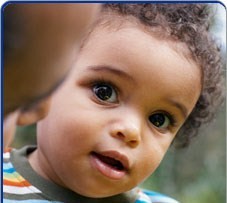Marketing language abilities
Recently some scholars in language acquisition and education have posted links on Facebook to the Campaign for a Commercial Free Childhood (henceforth CCFC), which is… Read More »Marketing language abilities
Recently some scholars in language acquisition and education have posted links on Facebook to the Campaign for a Commercial Free Childhood (henceforth CCFC), which is… Read More »Marketing language abilities
 New York Times reviews the latest research on baby babbling:
New York Times reviews the latest research on baby babbling:
http://www.nytimes.com/2010/10/12/health/12klass.html?src=me&ref=health
and an article on children’s use of irony. Tape recording of naturally occurring speech, but not laboratory experiments, reveal even quite young children can understand irony.
Discussion of the revitalization of and resistance to Romansh, the fourth official Swiss language related to Latin used during Roman times. http://www.nytimes.com/2010/09/29/world/europe/29swiss.html?_r=2&hp
Kathryn Woolard, SLA President In response to my original posting on this website, I received the following email message a few days ago from the… Read More »Guy Deutscher responds
Some interesting comments on the education system in general in a New York Times Editorial on Haitian Education These comments were posted in response to… Read More »More on Haitian Kreyòl and the education system
Posted for: Michel DeGraff, MIT Linguistics & Philosophy
Dear friends and colleagues,
We ask that you please take time to read, sign and distribute Professor Yves Dejean’s urgent public petition about school reform in Haiti.
The petition is available online at:
Why I find “geek”, when used as a slur, more offensive than words which may commonly be viewed as quite foul and offensive.
This year’s AAA meetings have the highest number of registrants on record. As one of the student assistants on the Executive Program Committee, the level… Read More »The Making of the AAA Meetings
 About the vuvuzela term: first, the suffix -ela is an “applicative” extension in isiZulu. The suffix “ela” means “an action… performed for, on behalf of, or in the direction of something or someone” (Mbeje 2005:229). Second, there are a large number of ideophones in isiZulu (in fact, the term was first invented as a grammatical category for the linguistic analysis of isiZulu). An ideophone is basically type of onomatopoeia. Thus the term “vuvuzela” can be understood as ‘the thing with which you make the vuvu sound for someone or something’.
About the vuvuzela term: first, the suffix -ela is an “applicative” extension in isiZulu. The suffix “ela” means “an action… performed for, on behalf of, or in the direction of something or someone” (Mbeje 2005:229). Second, there are a large number of ideophones in isiZulu (in fact, the term was first invented as a grammatical category for the linguistic analysis of isiZulu). An ideophone is basically type of onomatopoeia. Thus the term “vuvuzela” can be understood as ‘the thing with which you make the vuvu sound for someone or something’.
Taping marriages One of the most frequent uses of linguistic anthropology is to help us understand how people in marriages communicate with each other. Article… Read More »Linguistic Anthropology Roundup #8
The Arizona Department of Education is asking school districts to remove teachers who speak “heavily accented or ungrammatical” English from classrooms where students are learning English. In response, the Department of Linguistics at the University of Arizona has drafted a statement summarizing research on language variation and its effects on language acquisition.
In this edition of our bi-weekly Roundup: the satirical journal Speculative Grammarian tackles fieldwork; the Muscogee (Creek) Nation is discussing a resolution condemning Arizona’s new immigration law; work summarized in Science Daily suggests that loss of hearing in one ear affects children’s scores on language tests.
Linguistic Anthropology Roundup #3
The Boston Globe’s “The Word”, Conversations with Ron Scollon, Monkeys with Internet Access, Voting Osage, and more
Celso Alvarez Caccamo had such an interesting response to my first roundup that I have pasted it in full so anyone seeing the blog will… Read More »Celso Alvarez Caccamo on Catalan Language Policies
Welcome to the inaugural Society for Linguistic Anthropology Roundup Blogpost that will briefly summarize some of the current interesting linguistic anthropology related materials available on… Read More »Linguistic Anthropology Roundup #1
According to Ben Zimmer, various aliens in Star Wars spoke Quechua, one of the most widely spoken indigenous languages in South America, and Haya, a Bantu language spoken in Tanzania.
The new film Avatar features Na’vi, a constructed language said to “out-Klingon Klingon.”
An article passed on by Ken Ehrensal from the New York Times on Campbell’s monkeys having grammar. The grammar is pretty simple but looks like… Read More »Monkey Grammar?